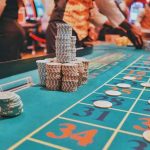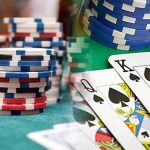In gaming, the thrill of unpredictable rewards plays a powerful role in keeping players engaged. Whether it’s a lottery, a slot machine, or an online game, almost every game uses a reward system to draw players in. At the heart of this is the brain’s natural response to rewards, which triggers a surge of dopamine—a neurotransmitter responsible for pleasure and motivation.
The psychology behind this is not limited to big jackpot wins but extends to smaller, more frequent rewards. For example, in the world of lotteries, programs like the PA Lottery deposit bonus offer players additional incentives to keep them invested in the game. These bonuses, which give players extra chances to win, exploit the same psychological principles as more traditional gaming rewards. Players stay motivated, driven by the hope that their next move could unlock an even bigger prize.
Understanding the science behind rewards and how gaming taps into this mechanism helps explain why players remain captivated by the unpredictable nature of jackpot-style games.
The Role of Dopamine in Reward Systems
Dopamine, the brain’s pleasure chemical, plays a significant role in the attraction to jackpot games. Players experience a surge of dopamine when they win, but even when they don’t, the possibility of winning triggers that same pleasurable response. It’s the anticipation of success that fuels the excitement.
The reward’s unpredictability keeps players on edge, expecting the next move to lead to a major payoff. Each game moment becomes a source of heightened tension, and this sense of anticipation keeps players returning for more.
Slot machines, for instance, are designed to maximize this effect. They don’t operate on predictable patterns; their outcomes are purely random due to a Random Number Generator (RNG). Every spin feels like a new chance, keeping the player engaged despite the odds being heavily against them.
Near Misses: The Almost-Win Temptation
Another powerful aspect of jackpot games is the near-miss phenomenon. When players come close to hitting the jackpot—maybe two of the three required symbols align—it triggers a reaction that feels almost as rewarding as a win.
Research shows that near misses activate the same reward circuits in the brain, making people feel like success is just within reach.
Social Dynamics and Group Excitement
Social interaction plays a major role in intensifying the emotional experience of gaming. People naturally feed off shared emotions, whether the excitement of winning or the solidarity of losing together. In group settings, especially in casinos or online platforms, watching others win can create a collective sense that a big win is achievable, and it increases emotional investment, making the gaming experience more engaging.
In online environments, constant updates of others’ successes amplify this effect. Seeing frequent wins boosts the belief that a personal win is close, turning individual emotions into a communal experience that keeps the excitement alive.
The Gambler’s Fallacy and Misperceived Patterns
A common cognitive trap that draws people deeper into jackpot games is the gambler’s fallacy—the belief that past losses or wins influence future outcomes. After a string of losses, many players believe they are “due” for a win, even though each round remains statistically independent.
The human mind naturally looks for patterns and trends, even when nonexistent. This inclination can fuel irrational decisions in jackpot games, as players believe their losses are paving the way for an eventual payout.
The idea that “luck is turning” keeps people in the game far longer than they might otherwise, perpetuating the cycle of playing, losing, and chasing wins.
Summary
The appeal of jackpot games lies in a combination of psychological factors. The brain’s natural response to unpredictable rewards, triggered by dopamine, keeps players excited and engaged. Near misses and the thrill of almost winning make the experience even more compelling, pushing players to continue. Social dynamics and the belief in patterns, like the gambler’s fallacy, further fuel this behavior. For many, gaming offers an emotional escape from daily life, making it a source of excitement and relief.












